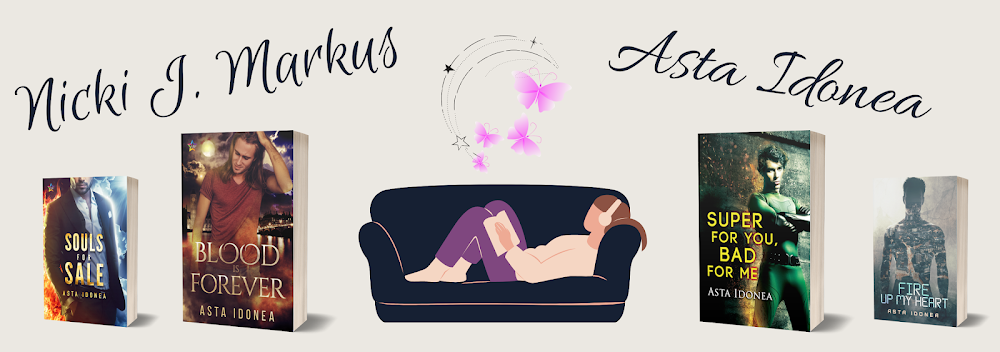I have noticed lately that a few bloggers are offering editing services to authors. Now, I myself am doing a little editing work for an e-publisher, so I have nothing against that. But I have a strong academic background in linguistics and I am currently studying for a Diploma in Editing and Publishing. So I wondered what background some of these other people had that made them put themselves forward as editors. In actual fact, I know one author who has also been editing and it really scares me as I have seen some of this person's unedited work myself and it was littered with errors. It makes me shudder to think that someone who cannot write a grammatically correct sentence themselves is correcting someone else's work.
I've read some self-published works in the past that have apparently been edited but which are still riddled with problems and I do wonder if that author has saved money by hiring an editor who has no real qualifications or experience. There is a lot of editing work about with the rise of e-publishing and self-publishing, so I thought I'd offer some thoughts and advice to those considering pursuing such work based on my own experiences so far. So, here we go.....
Let me say first off that this time last year I thought I had a good knowledge of correct grammar etc. I figured being an editor couldn't be too hard—it's only correcting someone's English after all. But then I started this diploma course and I realised I still had a lot to learn. Sure I had a good basis, but there were so many nuances that I hadn't thought of. Being an editor is more than just finding the odd spelling mistake or adding the occasional comma. That is really no more than proofreading. Editing involves a lot more skill and knowledge.
Editors have to consider not just typos but structure and tone. They have to have a good general knowledge and be able to fact-check. An understanding of publishing helps as an editor needs to be familiar with the terms for book layouts and how things should be set out. Depending on the sort of work you are looking for, you may also need to learn the symbols editors and proofreaders use to indicate changes for corrections and adjustments. This is almost a whole language system in and of itself.
So what if you want to get into editing/proofreading. I am hoping to begin pursuing it as a proper career myself, so here are three tips to those starting out:
- Consider investing in some study. The course I am taking at Australian College QED wasn't cheap, but it has been a real eye-opener and I have learnt so much from it already. I should finish this year and then I will have a nationally recognised qualification in editing.
- Build a reference library. No one can be expected to remember absolutely everything, so make sure you have a well stocked collection of reference books, including dictionaries, editing guides and grammar guides. Books on general knowledge items such as proverbs, symbols etc would also be useful.
- Get some experience. Many e-publishers take on editors. Most pay 10% of sales, some pay based on a per word figure. My experience working with e-publishers is that you don't make a lot. I've been lucky to scrape $10 an hour for most of my work. Eventually, if I make it as a freelance editor, I should be able to charge $25+ per hour, depending on the level of work the client requires. But, for now, this is a chance to build a portfolio and get some experience. If you are unsure of the extent of your editing skills, why not try proofreading first? Some publishers pay proofreaders a small fee; others expect you to proofread for free since you are getting to read the book. This might be a good option for those happy to read new works without pay as you can see if you have an eye for
- proofreading before you take things further—and you get some free e-books to boot.

I love this post! I agree that not everyone is cut out to be an editor (myself included!), and it's important for authors make sure they are using someone that really knows the role of an editor.
ReplyDeleteAn otherwise great book can be ruined for a reader due to grammatical and other miscellaneous errors that take them out of the experience and remind them that they are reading a book.
Best of luck to you in your editing career :-D
Sometimes editing has the main things which could make the whole work beautiful and this is why you need to careful here. useful site you'll be find some helpful information about the academic writing service.
ReplyDelete